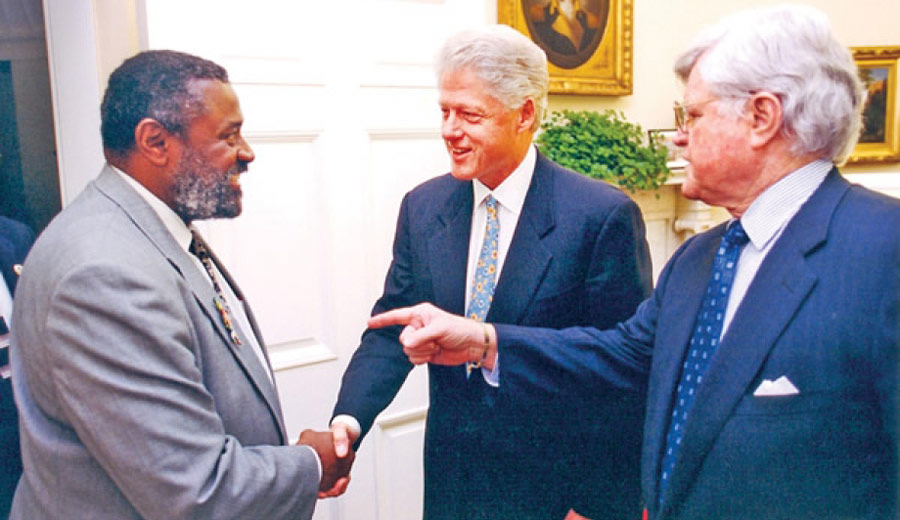The diversity in the human family should be the cause of love and harmony, as it is in music where many different notes blend together in the making of a perfect chord. If you meet those of a different race and colour from yourself, do not mistrust them and withdraw yourself into your shell of conventionality, but rather be glad and show them kindness. – Abdu’l-Baha, The Advent of Divine Justice
Dr. William H. “Smitty” Smith is a mediator of dreams. As an award-winning documentary filmmaker and educator, he uses the fantastical medium of television to mine underrepresented narratives centered on racial justice and reconciliation. In his compelling films such as The Invisible Soldiers: Unheard Voices, which looks at the lives of black soldiers during World War II; and An American Story: Race Amity and the Other Tradition – which explores the rich history of cross cultural friendships in the struggle for social justice – Smitty peels back the layers of deception to reveal America’s complex march towards racial reconciliation.

A graduate of the University of Massachusetts, Amherst, where he earned a Ph.D. in education, Smitty is the founding executive director of the National Center for Race Amity, an organization that promotes the Baha’i-inspired concept of unity, rooted in fellowship and meaningful relationships across cultural divides. Thanks to this initiative, the United States Senate passed a Resolution designating June 13, 2016 as National Race Amity Day. A recipient of numerous awards, including the National Education Association’s Award for Outstanding Program for Television; the NAACP Chairman’s Award for Service Through Media; and the AFTRA/SAG Diversity in Production Award, Smitty has worked tirelessly to dispel the illusion of separateness and unmask the reality of our shared humanity.
In this episode of America’s Most Challenging Issue, we sit down with Dr. Smith to discuss his journey to the Baha’i Faith, and the social and political upheavals of the 1960’s that seeded his investigation. We also look at his work as a filmmaker and how that path of service to all humanity has helped to shape America’s social discourse on race.

Comments
Sign in or create an account
Continue with Googleor